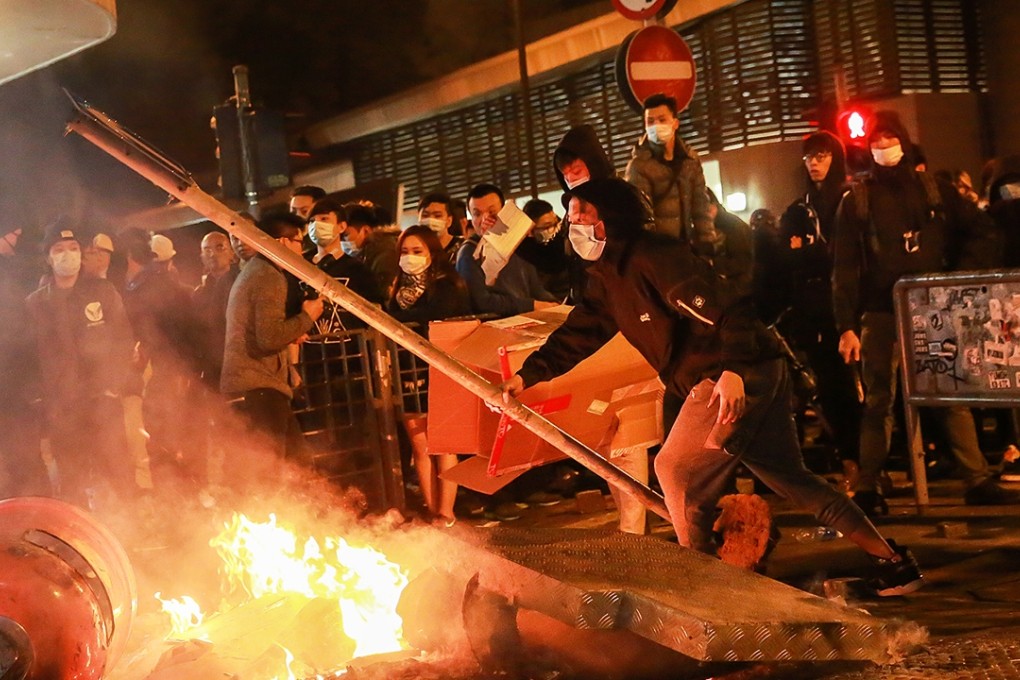Beijing signals less tolerant approach in branding instigators of Mong Kok riot as Hong Kong ‘separatists’
China-watcher says it is unprecedented for Beijing to identify separatists in the city, calling it a “wrong” categorisation that will lead to unnecessary escalation of anti-mainland sentiment

Beijing is signalling a less tolerant approach to social unrest in Hong Kong by branding the instigators of the Mong Kok riot on Monday night as “separatists”, China watchers said on Friday.
The central government raised the stakes in its first official condemnation of the rioters after Hong Kong police arrested 65 people and charged 41 of them.
READ MORE: Three more Hongkongers appear in court over Mong Kok riot, including Scholarism activist
On the face of it, the classification appears to place the rioters in the same category as separatists from the Tibet and Xinjiang regions, who are seen as a serious threat to national security, although there is a difference in the Chinese word used by the Ministry of Foreign Affairs for the Hong Kong protesters.
“On the early morning of February 9, a riot plotted mainly by local radical separatist organisation rocked Mong Kok,” Foreign Ministry spokesman Hong Lei said in the official statement, which did not specify whether one or more such organisations were involved.

China-watcher Johnny Lau Yui-siu said it was unprecedented for Beijing to identify separatists in the city. He called it a “wrong” categorisation that would lead to unnecessary escalation of anti-mainland sentiment.
The separatist label is “one level less serious” than “secessionist”, and the use of the former is a sign that Beijing could “conclude secessionist elements exist in the city, should the situation worsen”, Lau warned.
